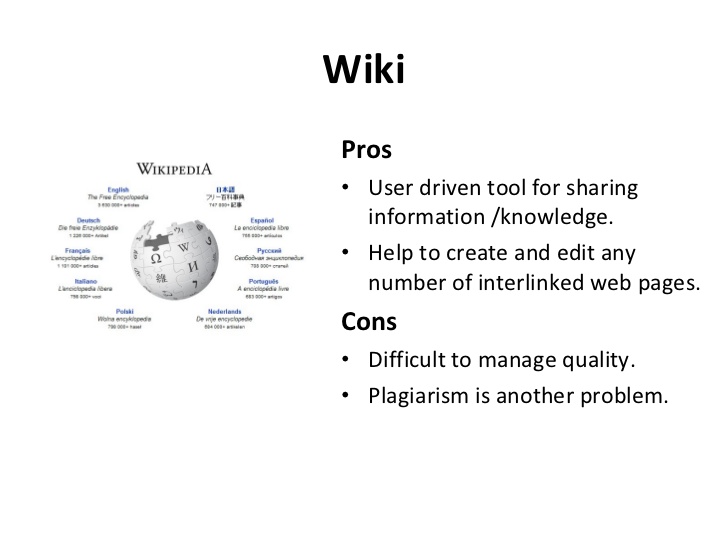Wikipedia page for a company increases recognition and notability. It adds credibility to any business.
A Wikipedia page is a web page on world’s best known encyclopedia created, edited and updated by volunteers. It contains over 4,500,000 articles in English, but there are many more in 280 languages.
10,000 articles are read each day and 500 million people read it every month. But Wikipedia has no formal editors or formal peer review process. A Wikipedia page is not for every business or organization.
Should your company have a Wikipedia page? Here are 8 Pros and Cons.
PROS
- INCREASES CUSTOMER CONSIDERATION: Because Wikipedia is a third-party, public website, information on your Wikipedia page may be more valuable to a potential customer than some of the information on your website.
- RAISES SEARCH ENGINE PRESENCE AND RANK: A Wikipedia page has high authority and usually a top rank for a brand or business name. A link from Wikipedia to your website is a valuable link.
- ESTABLISHES OWNERSHIP: If you think someone might create a Wikipedia page about your company that reflect a bias, then don’t let that happen and be the one to create it, first. Although you can’t control what other might say on it, at least it is yours to direct and attempt to keep correct.
- CONTROLS INFORMATION: Each edit or update of wiki information is recorded in the wiki software. If wrong information is edited, the software can easily revert the changes to the previous version.
- IS TIMELY: Information is updated online so you don’t have to wait for a particular publisher to update the information.
- PROVIDES REFERENCES: Wikipedia page contains references for all documents linked to the wiki information. This increases recognition and notability.
- IS FREE: There are no cost to create a Wikipedia page and no licensing or subscription costs required for installing institutional wiki.
- HAS FLEXIBILITY: The program has no any predetermined structure, it can be used for a variety of applications.
CONS
- ANYONE CAN EDITS: Anyone can add and edit Wikipedia entries, so information could be incorrect or deliberately false.
- LACK OF CONFIDENTIALITY: It is difficult to access user rights. Confidential information can get to the wrong persons since anybody can edit the information in Wikipedia.
- MONITOR FOR ACCURACY: Because of the first couple of cons, you’re going to have to regularly be examining your Wikipedia page for accuracy.
- NEGATIVE TESTIMONY: People who had bad experiences may come and talk about the negative sides of your business, and the editing staff is going to take a long, hard look at what’s going on if they see you deleting every bad thing someone else says
- MAY NOT GET A UNIQUE COMPANY PAGE: An editor may decide that your content would be better if merged into an article on similar businesses, rather than giving you a unique place on the web. This is a risk especially if you are a small business or start-up.
- NOT ALL ACHIEVEMENTS ARE NOTEWORTHY: A Wikipedia page cannot be promotional. If your company has just achieved a million dollars in sales, that’s not especially noteworthy for Wikipedia. If your company is a medical device that has saved a million lives, that’s a more relevant achievement.
- CITATIONS MATTER: Generally speaking, topics with multiple independent citations are considered worth having a unique page. Try for a minimum of four. The more you have, the better. The quality of the citations also matters. A small mention in your local newspaper is not a noteworthy citation. Exposure in a major national magazine might be.
- PAYMENTS MUST BE DISCLOSED: If you paid someone to create a company Wikipedia page, this has to be disclosed.
Is your company considering a Wikipedia page? Do these Pros and Cons help?

